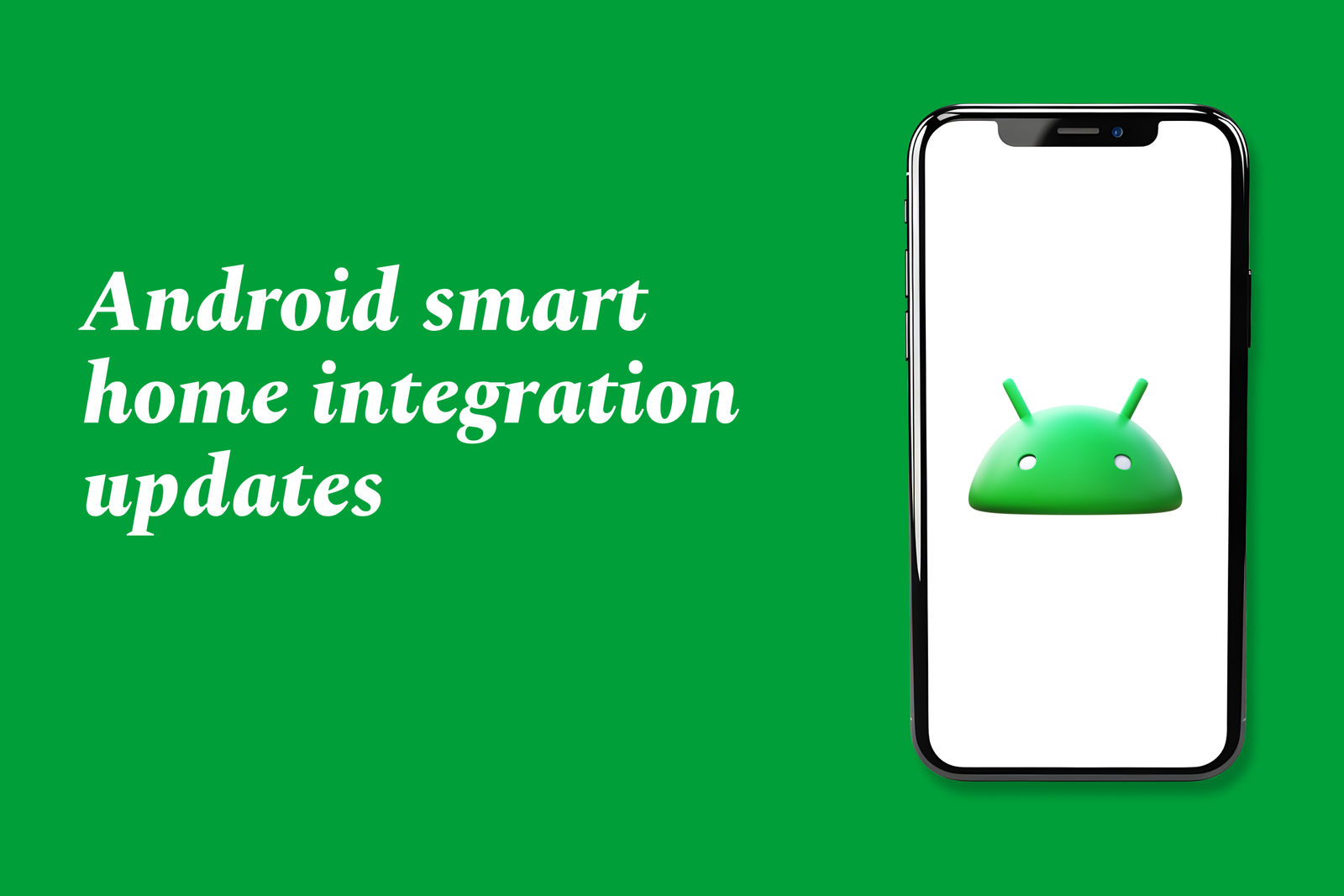Android Smart Home Integration Updates
Android smart home integration updates enhance device control and automation through apps like Google Home, SmartThings, and Home Assistant. They offer improved remote access, voice assistant support, expanded device compatibility, and smarter automation for seamless, convenient home management.
Android smart home integration updates
1 ) Google Home App Enhancements
The Google Home app now allows users to control smart home devices from anywhere, anytime.
Users can create a customized Favorites tab with their most used devices, automations, and actions for easy access.
The app supports managing smart home devices remotely, such as turning on lights or adjusting thermostats.
It offers automation features to handle everyday tasks, save energy, and enhance home security.
2 ) Samsung SmartThings App Updates
SmartThings integrates with numerous smart home brands including Samsung Smart TVs and appliances such as Ring, Nest, and Philips Hue.
Key features include remote control, building routines based on time, weather, or device status, shared device access, and device status notifications.
The app supports voice control through Alexa, Bixby, and Google Assistant.
It is optimized for Samsung smartphones, with some features limited on other devices.
The app requires permissions such as location, nearby devices, notifications, camera, microphone, and storage to function effectively.
3 ) SmartHome by AIDEOLOGY Improvements
Supports a wide range of smart appliances from brands like Midea, Eureka, Pelonis, and more.
Features remote control anytime via smartphone or Wear OS watches.
Voice control is supported through Amazon Alexa, Google Assistant, and Siri.
Provides timely notifications about appliance status, such as fridge door alerts and laundry cycle updates.
Offers customizable device cards for quick access on the home page.
Automations, including temperature based AC activation and scheduled device control, enhance convenience.
Uses Bluetooth, location, camera, and album access for device management and connectivity.
4 ) Home Assistant Platform Developments
Open source home automation emphasizing local control and privacy.
Includes features for automations, energy management, dashboards, voice assistant integrations (Alexa and Google Assistant), and advanced configuration.
Offers specialized hardware like Home Assistant Green, Yellow, and Connect ZBT 1 for Zigbee and Thread compatibility.
Supported by a vibrant community contributing over 3200 integrations.
5 ) General Observations
Voice control integration with Google Assistant is expanding across platforms but sometimes shows interface inconsistencies or missing features.
Users report varying experiences with third party apps in terms of stability and feature support.
Developers are actively improving apps and expanding device compatibility to enhance the smart home experience on Android.
https://justacademy.in/news-detail/android-system-ui-refresh-news
https://justacademy.in/news-detail/android-wearable-device-updates
https://justacademy.in/news-detail/new-ai-features-in-android-apps
https://justacademy.in/news-detail/android-apps-optimized-for-chrome-os
https://justacademy.in/news-detail/flutter-vs-maui:-desktop-race-heats-up
Related Posts
Java supports GDPR and data privacy by enabling secure data handling through encryption, controlled access, and precise data management. It allows developers to minimize PII exposure, ensure data confidentiality, and design workflows that comply with data protection regulations effectively.
Java code quality tools have evolved to include advanced static analysis, integrated security checks, and AI-powered code reviews. These updates help developers detect bugs, enforce coding standards, and enhance security, streamlining the development process and improving overall code reliability.
Java remains a cornerstone in big tech companies, evolving with modern features like records, pattern matching, and virtual threads. Its robust ecosystem, enhanced performance, and growing AI integrations keep it vital for both legacy systems and innovative new projects.
Java and CI/CD pipeline optimizations streamline Java application development by automating builds, tests, and deployments. They improve efficiency through parallelization, caching, and secure secrets management, enabling faster feedback loops and more reliable, scalable software delivery.
Java supports modern cryptography standards through its flexible Java Cryptography Architecture (JCA), enabling integration of advanced algorithms like AES, EdDSA, and post-quantum tools. Libraries like Bouncy Castle offer FIPS-certified, hardware-accelerated implementations for secure development.
Java 23 enhances record patterns by enabling concise, direct destructuring of record components within pattern matching, simplifying type checks and data extraction. This improvement boosts code readability and expressiveness by reducing boilerplate in handling immutable data classes.
Java remains a top choice for mobile app backends, powering scalable, secure, and high-performance server-side solutions. Latest trends include cloud-native microservices, reactive programming, and enhanced JVM optimizations, enabling efficient, flexible, and robust mobile backend development.
Java SE 24 and LTS Java SE 21 offer enhanced features and performance, while Apache Spark 4.0.0 introduces Scala 2.13 support and advanced ML and SQL capabilities. Together, they empower developers to build scalable, high-performance data applications with modern tools.
JUnit 5 modernizes Java testing with a modular architecture, improved assertions, and seamless Java 8+ support. Beyond JUnit, tools like Mockito and AssertJ enhance mocking and assertions, creating a powerful, flexible ecosystem for writing clean, efficient Java unit tests.
Java plays a pivotal role in cloud automation tools by providing a robust, platform-independent language used to build scalable automation frameworks like Jenkins and Selenium, enabling efficient CI/CD pipelines, testing, and orchestration across diverse cloud environments.










